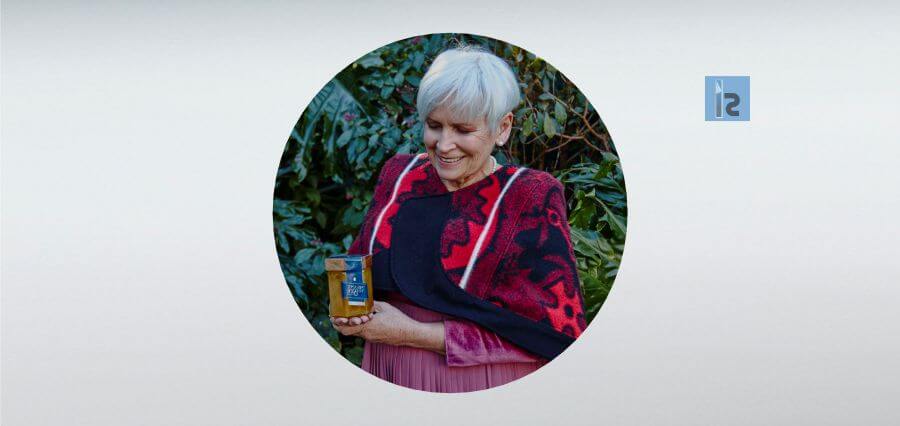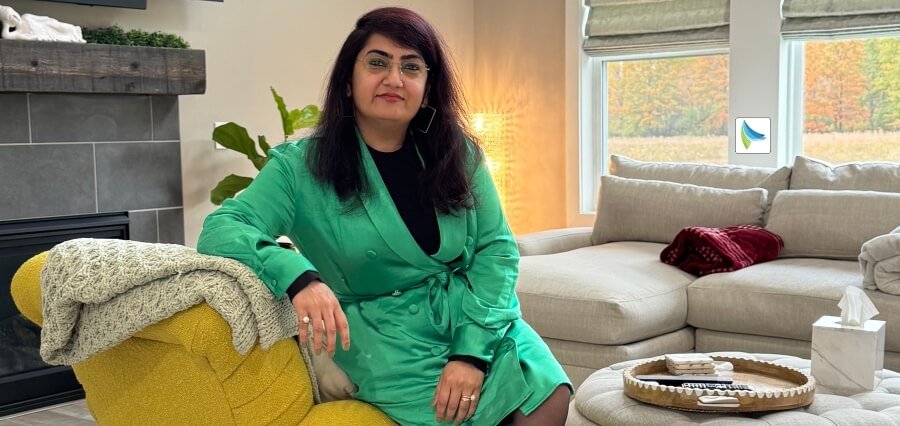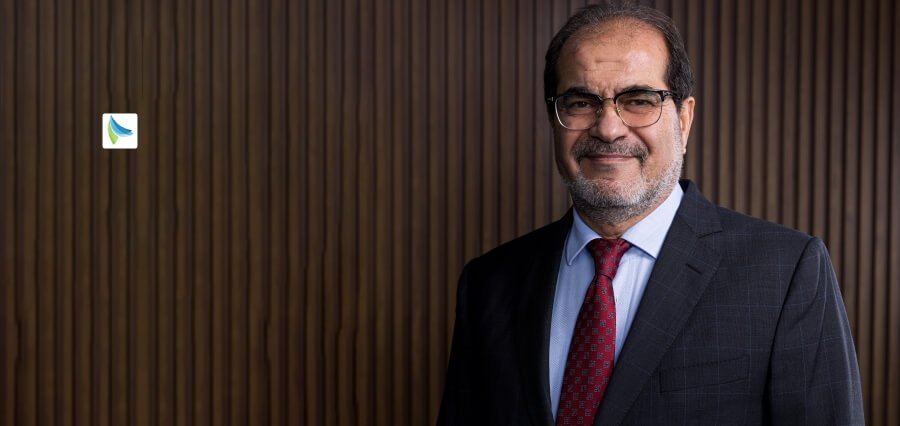The world is full of multiple organisms that support the Earth’s ecosystem. One of the peculiar ones is bees. They help pollinate seeds and supply ecosystems with food. Looking at the current scenarios, nature is at alarming risk!
Bees hold a crucial role in the ecosystem. The shortage of honey as hives produces lesser amounts, and factors such as pesticides and climate change effects only add to the question.
Thought of what would happen if bees just disappeared from the ecosystem?
It would lead to a sudden collapse in the natural ecosystem affecting the food chain on numerous levels and ultimately affecting the lifecycles of humans.
Thus, to save the natural ecosystem and bees with their bee hives, Driene came up with the ideation of supporting all the dimensions of the process. From bees to bee hives and providing essential equipment.
Driene Botes, Founder, and CEO of Meant To Bee, one who notices the gap in the industry, took her enthusiastic steps towards them by stepping into the arena with full confidence in shedding off the significant issues that occur behind the scenes.
Meant To Bee is a honey company that empowers small-scale beekeepers with an introduction to the business, training and ongoing mentorship in sustainable beekeeping, and access to the market, all under a common brand. Sounds interesting, doesn’t it?
Let’s dive into the world of honey of Meant To Bee and learn more about it!
The Beginning of the BEE Era
After the research in South Africa about rural beekeepers, and by that they found that the rural beekeepers don’t have access to the market or funding to grow, and they have the knowledge the know-how. So, they built a business model based on it to support the backdrop of rural beekeepers of SA. We give them training, extra equipment like hives, physical equipment to work with, and much more. Currently, they are busy developing an app to monitor the hives, the activities of bees, and the environment around them. Their Beekeepers are important to them.
In South Africa, there are thousands of small beekeepers, but due to a lack of knowledge, and access to the market, they can’t grow the industry or either provide more hives for them. Hence, Meant To Bee support beekeepers with their hives and hive equipment as well as providing training and mentoring them over a 3-year intensive period.
On top of that, they help harvest honey and, from there, take it to the market, so they get immediate access to the market instead of selling it from their own hands.
The Charismatic Leader
While talking about Drienie being a born entrepreneur, She became a mom quite early in her life at the age of 32 and now is the mother of 2 kids. As a mother, she didn’t want to go continue her endeavors in the corporate world.
In the last few years, she has done vigorous research work and studies at Gibbs Business School. Later she started importing jewelry business from China to South Africa, and it hit the records head-on. While talking about professional careers respectively, Drienee states, “I had some good years with a lot of bad years too.”
Depicting her journey, she came from rural areas where she lived in a very strict African family. Currently, she is a single mom and brought up two kids by herself. Her elder son is a 28-year-old doing a Ph.D. while her daughter works at a very influential company in South Africa.
Down in the line, in researching the honey industry, she understood that without bees, we (humans) would not have food and much more. Thus, the need for more bees to survive increased. Given the fact that bees populate almost 1/3rd of the population.
One of the highlighting specific things about the Meant To Bee Business is that they not only support beekeepers but, most importantly, they support food security which is essentially an important element in the food manufacturing industry.
Drienie’s love for working with beekeepers has been abundant in the past ten years. She has done upliftment within the rural communities where she provided training. During the training process, she noticed a gap in the market despite the people of South Africa being passionate about their work. Thus, her love for helping them get access to the market increased.
Another interesting element of working with bees and beekeepers is exciting unless it bites; that’s another story altogether.
Major Offerings Of MTB
The services they offer majorly support small beekeepers and provide each beekeeper by giving them 150 hives and give them needed support while catching bees at each base. They give each beekeeper intense training so that after allotting each 100 hives, they facilitate them with 2 two additional people to support them endlessly.
During the winter season, it is crucial to feed bees so that they are ready to produce honey in the summer and give them proper care and nutrition as bees are fit. They start working in summer with full flesh towards producing honey in South Africa, in 3 months of summer, where the business truly furnishes.
As the harvesting of honey starts in the months of November, December, January, and February, these are mostly busy for them, as they are harvesting honey in various areas.
In the upcoming year, Meant To Bee is planning to start pollinating and currently getting to a point where beekeepers understand the industry very well. While talking about the power point, Drienie states that “If a beekeeper has only 40 hives, what amount of money will they make would be tripled if we are supporting them with 150 hives.”
At MTB, they also teach feeding their bees and increase harvesting of honey. Thereby increasing the harvesting of honey. The youth that depends on honey is much higher, and if beekeepers are trained in a better way, they will know their business better. The scenario is completely different without feeding the bees and not following a proper regime. Hence, they claim it is extremely important to do the right training for beekeepers and provide money to beehives and get a better edge in the peak season.
They particularly aim the production raw honey without mixing any additivities in it. They try to give it a raw, natural, and better flavor. They do not mix any sugar or preservatives in their honey.
“When they say it’s raw honey, it is completely natural raw honey you’ll get from them.”
It is the process of harvesting raw honey to get it into the bottling plant with pure honey and no sugar. They need to work with pure raw honey. It is also very important to educate the industry about this because people in South Africa, but by looking at the price of it-
Drienie claims, “It’s not the price that matters but the purity, richness of honey that matters the most. It is pure hard work, and it’s hand harvested. If you want to buy raw honey, you’ll get it raw from with its richness in flavor and all.”
The core of the Hive
Meant To Bee is taking the international raw, natural honey market by storm and is negotiating with local and international customers. Not only is it offering a premium African product, but it’s allowing customers to be a part of something bigger than themselves and uplift those less privileged.
The business allows previously disadvantaged beekeepers to use their existing hives to support themselves, their families, and their communities. There are no extra expenses to the beekeepers who supply Meant To Bee with its premium honey. The partnership allows a beekeeper with 40 hives to make a profit of about R42,000!
Thus far, the company has attended two exhibitions, SAITEX and the Hotel and Hospitality Show. Drienie has already booked a spot at SARCDA Christmas and the Natural and Organic Show. She is also planning to attend various international exhibitions in 2023.
But it isn’t all sunshine and roses. When Meant To Bee started, Drienie quickly realized that SME beekeepers, particularly black-owned enterprises in rural areas and from disadvantaged communities, faced many challenges, including predatory pricing tactics from larger honey buyers, lack of market information, lack of access to capital, inability to access financing, and a lack of operational support. Meant To Bee addresses these challenges through a partnership with its SME beekeepers.
Honey Harvesting
For the last ten years, Drienie has been working in communities and has seen the exciting ideas of these entrepreneurs and business people. She observed quite early they often don’t have the knowledge or resources to get their ideas to the market, but Drienie did! She realized many disadvantaged beekeepers had incredible products without the means to get them to the market. Inspiration hit, and she started Meant To Be. She hasn’t looked back since.
Through her experience in marketing, communications, and SME development, she assists the beekeepers her business identified to thrive.
They are building a quality brand with premium products that uplift small beekeepers.
Deeds That Stand Apart
Meant To Bee is taking the international raw, natural honey market by storm and is negotiating with local and international customers. Not only is it offering a premium African product, but it’s allowing customers to be a part of something bigger than themselves and uplift those less privileged.
The business allows previously disadvantaged beekeepers to use their existing hives to support themselves, their families, and their communities. There are no extra expenses to the beekeepers who supply Meant To Bee with its premium honey. The partnership allows a beekeeper with 40 hives to make a profit of about R42,000!
Thus far, the company has attended two exhibitions, SAITEX and the Hotel and Hospitality Show. Drienie has already booked a spot at SARCDA Christmas and the Natural and Organic Show. She is also planning to attend various international exhibitions in 2023.
However, it isn’t all sunshine and roses. When Meant To Bee started, Drienie quickly realized that SME beekeepers, particularly black-owned enterprises in rural areas and from disadvantaged communities, faced many challenges, including predatory pricing tactics from larger honey buyers, lack of market information, lack of access to capital, inability to access financing, and a lack of operational support. Meant To Bee addresses these challenges through a partnership with its SME beekeepers.
Tech Advancements into Meant To Bee
The team meant to plan the Unicorn Incubation initiative from Dr. Akintoye Akindele (training by seasoned mentors, business leaders, and advisors; access to accounting, legal, and financial professionals at no cost to the participants; networking opportunities with other entrepreneurs and global industry participants; access to funding of up to $1 million; support to access local and international grants raised by Unicorn or its affiliates)
Further, they plan to inculcate the SheTradesZA opportunity. While offering online courses around export readiness through the International Trade Centre and The Global Business Accelerator or SME Export Incubator with the Johannesburg Chamber of Commerce and Industry. The support and preparation from these courses have been invaluable in preparing her and the business for opportunities and funding.
Drienie adds, “Through the Meant To Bee model, the success of our SME beekeeper partners is our primary concern and objective, as their success ensures our financial sustainability. The ultimate dream is to see our African brand fill the shelves at international outlets, and I believe that we will, despite the challenges.”
Walls of Impediments within the Beehives
No business venture is without obstacles, and Drienie and her team have faced their fair share, including navigating the lonely journey of entrepreneurship, the flood of ‘honey’ into the market that affects the price of raw, natural honey, and securing much-needed funding.
One huge door that has opened up for Drienie and Meant To Bee is being selected as one of 25 African entrepreneurs to take part in the prestigious Unicorn Incubation initiative. She hopes the course will take them to the next level and open doors for funding.
Another challenge has been finding the perfect match for the beekeeping project, “There are thousands of beekeepers and people with available land that would like to be part of our project, but we do not have enough funds to accommodate them all.”
However, Drienie isn’t shying away from the challenges. She says, “I keep knocking on doors and do not give up. I believe in my dream, and I have faith in God.”
Envisioning Future
The Future goals of Meant To Bee are to venture into the international market like USA, Germany, Japan, Saudi Arabia, and many more to enhance their business progressively.
Educating the public about raw honey, its benefits, why they should look at product labels, and the difference between raw honey, irradiated honey, and imported honey is another goal the company is striving upwards.
Drienie envisions dreams and goals for the future ahead of Meant To Bee, “Firstly, I want to see Meant To Bee’s honey all over the world, in every shop, as a recognizable brand. People must know that when they buy from us, they buy raw, natural honey from a small African farmer. The world must know the African story!”
Client Testimonials
Meant To Bee had the privilege earlier this year to exhibit in Dubai inside the South African Pavilion. That has been their very first Internationale exhibition and a learning curve. Drienie has done a few courses this year to enhance her own business to educate herself regarding International trade and the circular economy.
- ICLEA and ACE Africa Circular Economy;
- Pitch for Funding: Unicorn and The Platform Capital ( a Nigerian Company)
- Future Females: Export Readiness;
- ITC Training: Export Readiness, Social Entrepreneurship, Export Marketing strategy, and Enterprise sustainability;
- JCCI
Prestigious Awards
Nominated by ICLEA to attend the South African Innovation Summit in South Africa in September.
Walked as the Winner and attended SLUSH in Finland in November. The price has been sponsored by the Finland Embassy in SA. This has been an extremely exciting journey!
She will be back at SLASH in 2023 and believes she to make it to the final pitch this time! (The price someone was this year 1 million euros, how cool!)



















